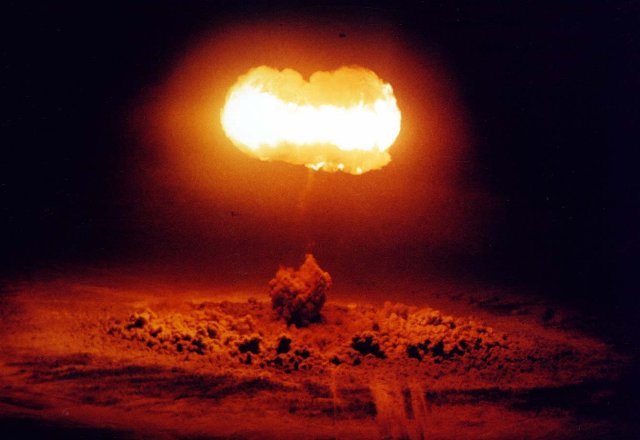North Korea threatened a “pre-emptive” nuclear strike against the United States and any other aggressors Thursday as the UN Security Council prepared to adopt tough sanctions against the isolated state.
A foreign ministry spokesman also warned that a second Korean war was “unavoidable”, with both the United States and South Korea refusing Pyongyang’s demands to cancel a large-scale joint military exercise next week.
“Now that the US is set to light a fuse for a nuclear war, (our) revolutionary armed forces… will exercise the right to a pre-emptive nuclear attack to destroy the strongholds of the aggressors,” the spokesman said in a statement carried by the Korean Central News Agency (KCNA).
In the past, the North has threatened attacks on US forces in South Korea and also claims to possess long-range missiles capable of carrying a nuclear warhead to the continental United States.
The latest threat came two days after the North Korean military announced it would rip up the 1953 armistice agreement ending the Korean War — a move that would theoretically pave the way for a resumption of hostilities.
Tensions have escalated sharply on the Korean peninsula in recent days, ahead of the UN Security Council vote and the annual US-South Korean military exercise scheduled to begin on Monday.
The Security Council was expected to adopt a resolution later Thursday tightening the UN sanctions screws on North Korea after its widely condemned nuclear test last month.
Amounting to one of the toughest sanctions regimes ever ordered by the United Nations, the resolution also threatens “further significant measures” if the North stages a new nuclear test or rocket launch.
Thursday’s Pyongyang foreign ministry statement warned that adoption of the resolution would fast track North Korean plans to carry out promised “powerful” countermeasures.
The spokesman also stressed that the decision to “nullify” the 1953 armistice would come into effect when the US-South Korean military drill begins on Monday.
“This means that from that moment the revolutionary armed forces will take military action for self-defence against any target any moment,” he said.
Meanwhile, North Korean state television showed a massive military and civilian rally held Thursday in Pyongyang’s giant Kim Il-Sung square.
The rally was addressed by senior military and party officials who denounced the United States and warned that Washington would reap the consequences of its “aggression”.
Sabre-rattling and displays of brinkmanship are nothing new to the Korean peninsula, but there are concerns that the current volatile mix of bellicose rhetoric and military drills could spark a random clash with the potential to snowball.
Bruce Klingner, a Korea expert at the conservative Heritage Foundation in Washington, said the “risk of miscalculation and escalation” was heightened by the presence of new leaders in both Koreas.
Kim Jong-Un, believed to be in his late 20s, succeeded his late father Kim Jong-Il as North Korea’s supreme leader a little more than a year ago.
South Korean President Park Geun-Hye was only sworn in two weeks ago and has been working without a fully functioning cabinet because of a policy stalemate in parliament.
“Kim Jong-un lacks experience and may stumble across red lines that his predecessors would have known not to have crossed,” Klingner said.
For all its claims, North Korea is widely judged to be many years away from delivering a nuclear warhead to the US mainland.
A successful long-range rocket launch in December suggested progress in ballistic technology but without the re-entry capability required for a genuine inter-continental ballistic missile.
This is also not the first time the North has threatened to do away with the armistice agreement — having made a similar promise in 2009.
Because the Korean War combatants never signed a peace treaty, the two Koreas remain technically at war, with the armistice operating as a ceasefire pact.










